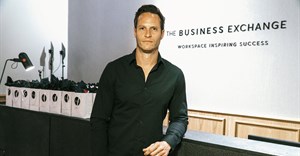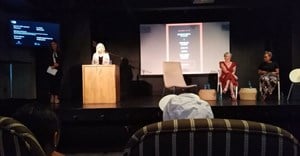
Subscribe & Follow
Jobs
- Content Curator Ilovo, Sandton
- Digital Archive Intern Cape Town
- Junior Digital Art and Social Media Marketing Coordinator Johannesburg
- Digital Writer - 2 Posts Cape Town
- Digital Graphic Designer - User Experience Cape Town
- Digital Graphic Designer - Digital Graphics Cape Town
- Digital Marketing Learnership Cape Town
- Social Media Intern Pretoria, Johannesburg
- CRM Digital Manager (6-Month Contract) Johannesburg
- CRM Digital Admin / Consultant (6-Month Contract) Johannesburg
Does new tech supplant old?

According to Plato (in the Phaedrus), Hermes - the alleged inventor of writing - presents his invention to the pharaoh Thamus, praising his new technique that will allow human beings to remember what they would otherwise forget. But the pharaoh is not so satisfied.
My skillful Hermes, he says, memory is a great gift that ought to be kept alive by training it continuously. With your invention people will not be obliged any longer to train memory. They will remember things not because of an internal effort, but by mere virtue of an external device.
End of mass communication
When CEO Mark Zuckerberg launched Facebook's Social Ads in 2007, the 23-year old CEO spoke about the end of mass communication that was common to the last century.
Today, “pushing your message out isn't enough anymore,” he said. “The next 100 years are going to be different, and its starts now... For the last 100 years media has been pushed out to people, but now marketers are going to be a part of the conversation. And they're going to do this by using the social graph in the same way our users do," mediaweek reported.
Instead of being around another 100 years, Facebook, Twitter and a host of other social networking sites will be very lucky to survive 2009. Deloitte has recently come to the stunning conclusion that providing unlimited online storage for everyone isn't necessarily the best idea for a business anyone ever had.
"The book value of some social networks may be written down and some companies may fail altogether if funding dries up," said Paul Lee, Deloitte director of research for technology and telecommunications in a recent edition of the Telegraph.
"Many of the most popular social networks, such as Facebook and Twitter, do not yet generate large profits," Lee said.
Microsoft paid US$240 million for a 1.6% stake in the company; it valued Facebook at US$15 billion, a valuation many analysts agreed, was too lofty. According to papers from the recently settled court case between Facebook and Harvard University dating site ConnectU, Facebook believes its common stock is worth only US$3.75 billion.
Facebook has revenues, thanks to ad deals cut as its buzz peaked in 2007. Meanwhile, it is losing hundreds of millions of dollars in nett to build the world's largest database of personal trivia.
Undermine
Apart from surviving difficult economic times with no real revenue, history suggests that the Internet itself will undermine social networking sites. They are closed worlds based on proprietary standards.
Historically, online media tend to start this way. According to Charlene Li at Forrester, “[t]his is part of the continued evolution of open platforms, starting with walled garden services like Prodigy, Compuserve, and AOL that evolved into the major portal aggregators like Yahoo!, MSN, and AOL. Today's social networks are a throwback to those early closed platforms, and they will be opened up by new ‘entrants' into the social space - namely, Yahoo!, Microsoft, Google, and AOL - who will leverage their deep, daily relationships with online audiences.”
The problem with the current crop of services is that they are to varying degrees not interoperable. Users have to maintain separate accounts on several social networks, instant messaging services, photo-sharing and blogging sites, and usually cannot even send simple messages from one to the other.
“I believe they (and we) will look back to 2008 and think it archaic and quaint that we had to go to a destination like Facebook or LinkedIn to ‘be social',” is the opinion of Lee.
A rather old fashioned technology, email, seems poised to replace the current incumbents. Because your inbox contains invaluable and dynamically updated information about human connections, an email account can provide valuable information about frequency, intensity and context of contact as it occurs. For example, Paul gets emails from his bank manager and a car dealer. He also emails a florist, buys something and his wife's name is in his calendar today.
Notoriously deteriorates
On Facebook, a social graph notoriously deteriorates after the initial thrill of accumulating dozens of semi-friends, spying on a few exes for a bit, getting bored, then get on with your life, occasionally dropping in to respond to a message or see some photos that have been posted.
Similarly, once the novelty of MySpace wears off, most people only stop by to check out bands or watch videos.
So, what will future social networks look like?
Lee believes “that in the future, social networks will be like air. They will be anywhere and everywhere we need and want them to be.” Will that leave us with only Google, Google Chrome and Gmail?



















